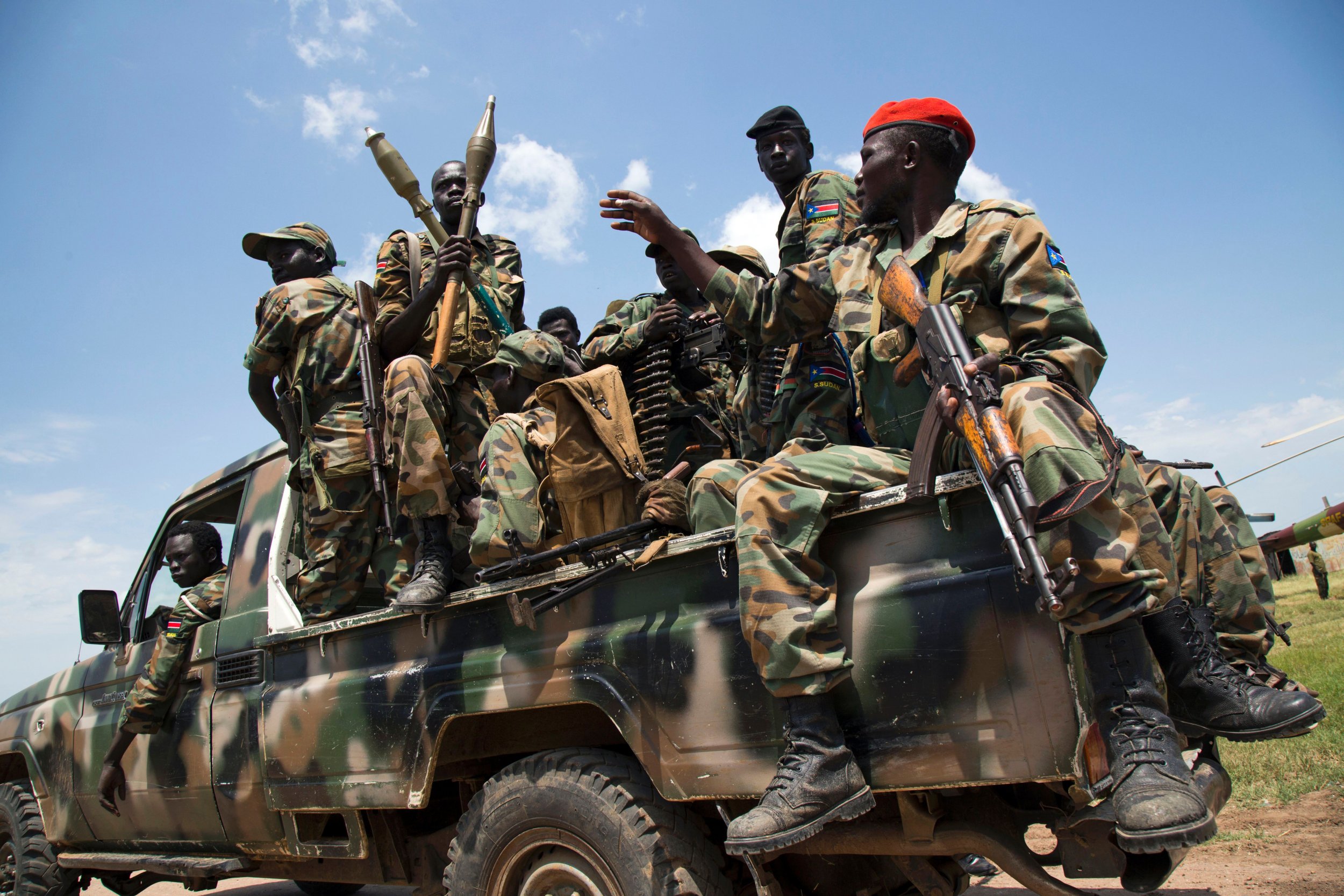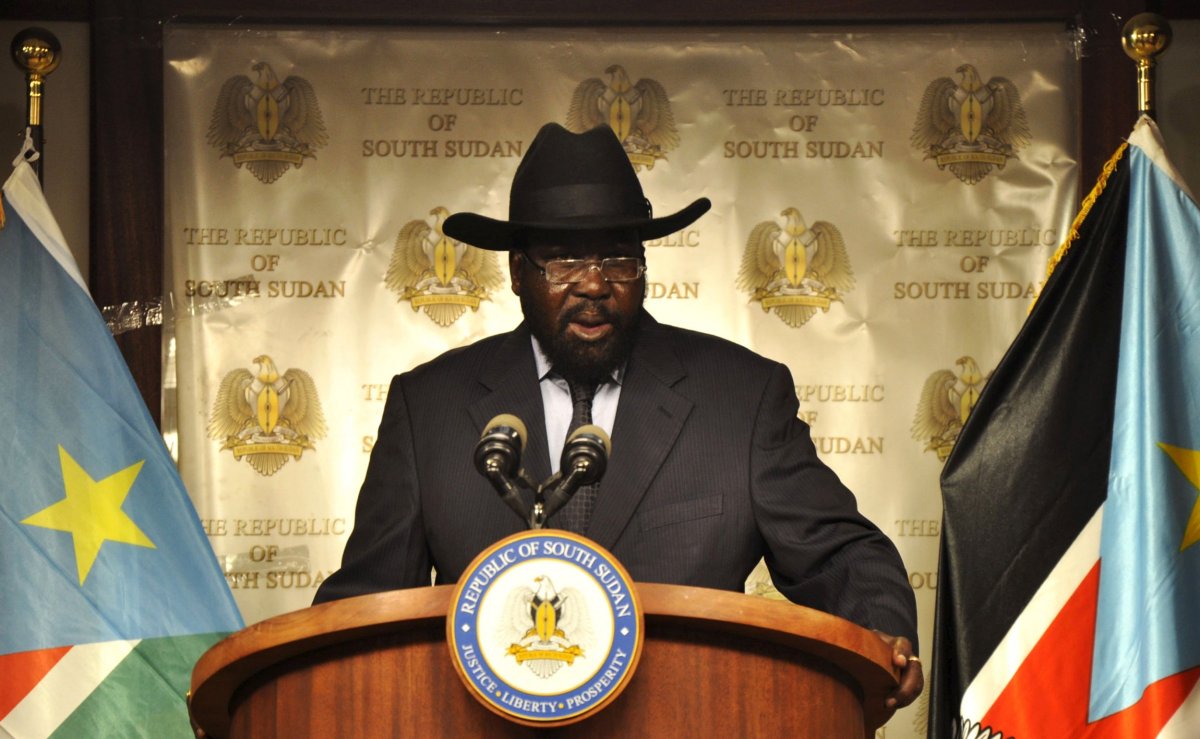
Despite warnings by the United Nations of a possible genocide in South Sudan, the Security Council voted on December 23, 2016, to reject a U.S.-sponsored resolution calling for an arms embargo and targeted sanctions. Russia and its allies in the council accused the United States of ignoring the call for a national reconciliation made by President Kiir in a speech on December 14. They seem to question the credibility of the U.N. warning. Instead, they claimed that President Kiir's initiative should be given the chance to restore peace and stability in the country.
The eight members of the Security Council who abstained—including China and Russia, which hold vetoes at the council—appear to view South Sudan's crisis through the discredited colonial prism. It is a popular but wholly mistaken assumption that South Sudan is a country inhabited by an array of tribal groups accustomed to communal violence. Hence, any attempt to intervene to restore law and order through a political mechanism is bound to fail.
Indeed, the call for a national reconciliation in the midst of worsening humanitarian and security conditions is welcome, but not durable. National dialogue and reconciliation cannot precede a political process geared toward addressing the underlying causes of the crisis.
In his speech proposing a national reconciliation, President Kiir called upon South Sudanese political, civic and religious entities to participate in a national dialogue to restore peace and reconciliation among warring communities. The proposed national dialogue seems to include those who reside inside the country and exclude those remaining abroad—where his main opponents, including former vice-president Riek Machar, are based. The president's call infuriated his opponents and galvanized his supporters, perhaps even deepening the political divide.
There are three problems with Kiir's proposed initiative. First, it frames the crisis in South Sudan as a communal instead of a political one. Second, it excludes the voices of those who have been victimized by the utterly inhumane violence manifested in systematic gang raping, mass displacement, and ethnically targeted killings. Third, it reinterprets the peace agreement signed in August 2015 and renders its political components—in particular the formation of an inclusive transitional government of national unity—irrelevant. It therefore perpetuates and legitimizes the status quo.
The documented, ongoing mass atrocities in South Sudan are manifestations of how the post-independence state was framed and constructed. It was a product of a specific mode of governing marked by ethnic sentiment, political loyalty, and public corruption. Hence, it is inaccurate to interpret the ongoing crisis as an ethnic or communal conflict, ignoring the political nature of it. The call for a national dialogue purposely ignores these realities and assumes that conflicting ethnic communities can be reconciled by engaging their civic and religious leaders in a dialogue, without addressing the political and ideological causes of the crisis.
The civil war in South Sudan has forced more than 200,000 to seek refuge at U.N. peacekeeping bases in the country and 1.2 million to flee to neighboring states. Without taking this sad human tragedy into account, the national dialogue—which seems to be unwisely backed by regional and international actors—will remain merely political rhetoric as long as those civilians cannot return to their original homes. The voices of the victims of the conflict cannot be excluded from any credible national dialogue that is expected to lead to a national reconciliation.
Instead of seeking a well-devised political strategy to revive the peace agreement, the president's call for a national dialogue and the Security Council's failure to endorse the proposed arms embargo mean peace looks unlikely. The agreement called for constituting an inclusive government of national unity to engender political, economic, and security reforms. The collapse of the transitional government in July 2016 not only hinders these desirable reforms but also shatters the opportunity for a successful national reconciliation.

There is no easy path to sustainable peace in South Sudan. The difficult path to lasting political stability and national reconciliation has to take into account the underlying causes of the tragedy. The failure to reach a consensus on the fundamental contentious issues of governance; rule of law; inclusivity of the government; and adherence to the democratic values of justice, freedom, equality, and citizenship are at the center of the unfolding political crisis. It is still the responsibility of the United Nations and Troika countries—Norway, the U.K., and in particular the new U.S. administration—to engage directly in devising an effective political mechanism to revive the peace agreement. Short of this, the status quo will continue to produce violence, displacement and death in South Sudan.
Amir Idris is a South Sudanese academic and professor and chair of Department of African and African American Studies at Fordham University, New York City.
Uncommon Knowledge
Newsweek is committed to challenging conventional wisdom and finding connections in the search for common ground.
Newsweek is committed to challenging conventional wisdom and finding connections in the search for common ground.
About the writer
To read how Newsweek uses AI as a newsroom tool, Click here.








